The second working day of the V International Forum of Muslim journalists and bloggers took place on September 27, in St. Petersburg (the reportage from the first day of the event). The participants of the representative meeting from more than 20 countries continued to discuss the phenomenon of fake news and paid their special attention to the freedom of journalism in the context of human rights.
Social media and “soft power”
Jordanian journalist Tariq Qudies, representing “Mustaqbal” and “Al-Rai” publications, highlighted in his speech the fact that spread of fakes and the attempt to play on people’s feelings via them were a great danger. Attempts to mislead public opinion make the task of counteracting fake information extremely urgent. Examples from recent history show how one can provoke political crisis and serious economic problems with the help by skillfully manipulating information. The Syrian crisis is very illustrative in this regard. As far as Bashar Assad is concerned, Western governments and mass media have taken a position of guilt presumption. Disclosure of false information, in the opinion of the Jordanian journalist, requires the use of various methods and techniques. Firstly, it is necessary to check the accuracy of information. Mass media should take action that the information they hold is accurate before presenting it to their audience. The key moment in this case is work with the source of information. Secondly, there should be ongoing discussion within editorial offices about what news is false. Thirdly, it is necessary to encourage public education.
Countering fakes is not a monopoly of one institute (the mass media, in this case). The official bodies should also take some steps to build bridges between people and state. Restoring mutual trust is a solution to the problem of harmful impact of inaccurate information on public opinion.
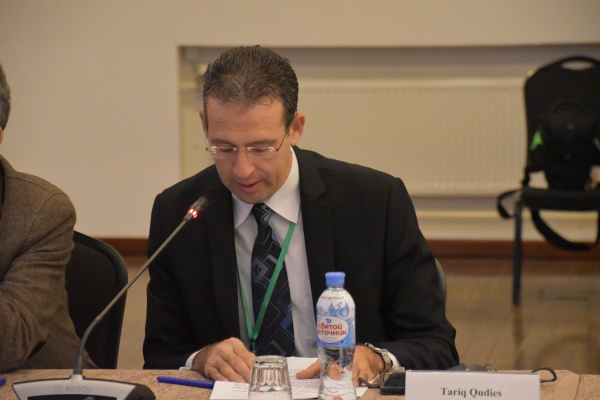
Tariq Qudies
Executive chief of “Rekyat Merdeka Daily” publication from Indonesia Kartika Sari began the presentation of her report with reminding the audience about the fact that Indonesia was the most densely populated democratic country. At the same time, there are 280 million Muslim people in the country, which destroys the common myth about incompatibility of democracy and Islam. Simultaneously with it, Indonesia is an attractive market for social media, where the majority of fakes come from. Kartika Sari provided the data according to which 50 percent of all fakes appearing on the Internet of the country were published for the first time and further disseminated on Facebook.
In spring of the year 2019, presidential elections took place in Indonesia. During the election campaign, both candidates actively presented their political programmes on the Internet. That was not without circulation of fakes, in both directions. Kartika Sari stressed that it was the duty of journalists to fight against false information, regardless of their political beliefs. Besides, such work should be carried out not only for politicians, but also in the interests of ordinary people. Fakes are often used to extort money from ordinary citizens.
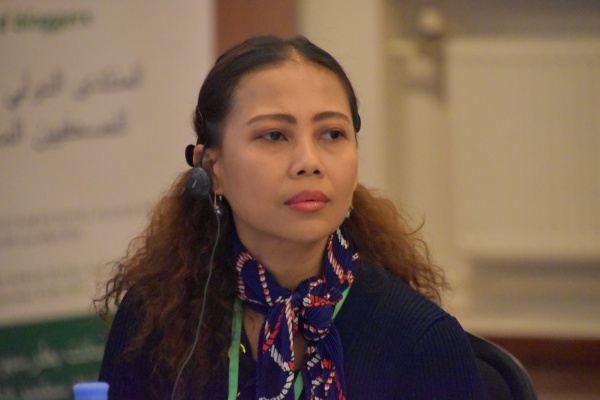
Kartika Sari
Ghassan Rifie, editor-in-chief of website “As-Safir” (Lebanon), touched upon the topic of adapting mass media to the social media presentation in the framework of his speech. Even official media resources can spread rumours in order to get additional traffic and raise their rating. All this is done without any respect for human dignity. People are forced to believe blindly in false messages, which, although seem to be operative, but there is nothing behind them, except malicious intent. One of the targets of information attacks in the Middle East is Russia. In the Islamic world Moscow is considered to be strategic alternative in the light of American attempts to undermine stability in the countries, population of which predominantly practice Islam. At the same time, Russia bears a great responsibility. The Lebanese journalist pointed out that so far efforts of Russia to promote its own culture and language had been inferior to those of the United States. However, we cannot give up on this issue – a balance with the USA is necessary for the entire global political system.
Representatives of various social strata, including the young and women, should participate in cultural programmes initiated by Russia. The use of “soft power” will let Russia create its own “electronic army” in the Arab world, which will become an important factor in demonstrating the position of Russia. Each day the USA is trying to influence the public opinion of Islamic countries with the help of some organizations under the guise of aid and culture exchange. In fact, they contribute to the penetration of the American lifestyle – they convince that only Americans are saviours of the world. France, which relies upon French-speaking countries, is also trying to implement this kind of policy. China is actively using mass media in order to show its economic attractiveness.
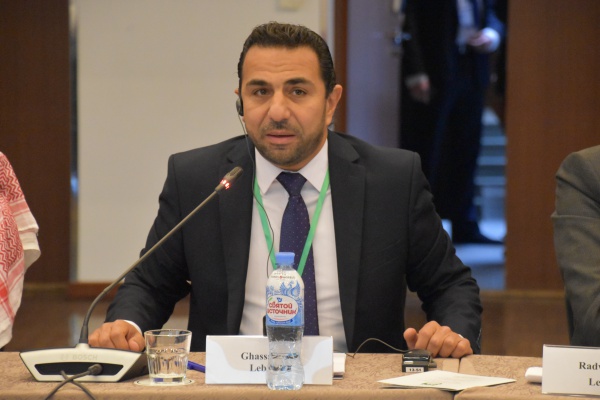
Ghassan Rifie
Freedom of journalism in the context of human rights
Ambassador Extraordinary and Plenipotentiary, Chief Counsellor of the International Institute of Energy Policy and Diplomacy of MGIMO (University) of the Ministry of Foreign Affairs of Russia, Envarbik Fazelyanov stated the establishment of the new polycentric world system with its own rules. The ability of states to reach an agreement gets a crucial role within this world order. The creative search for common answers to pressing issues is supported by, among other things, mass media and public diplomacy tools. A vivid example of the latter is the Group of Strategic Vision “Russia – Islamic World”, which makes a significant contribution to the development of inter-civilizational dialogue.
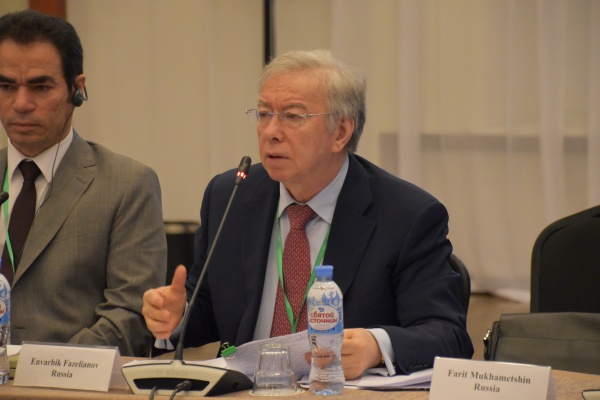
Envarbik Fazelyanov
Abdul Jalil bin Abdul Hamid from Malaysia began his speech with the reference to the article by Minister for Foreign Affairs of Russia Sergey Lavrov, who claimed that the world was at the crossroads. The world order is changing due to the emergence of new geopolitical forces. The influence of the artificial intelligence and global technology corporations (Facebook, Twitter) on the public opinion in various countries of the world is becoming more obvious. At the same time, Islam is being actualized by Western thinkers. Orientalistic discourse about this religion dominates within the media space. “It is obvious that Russia and countries of the Islamic world should strengthen their ties in the field of social media and online-journalism”, the journalist from Malaysia summed up his speech.
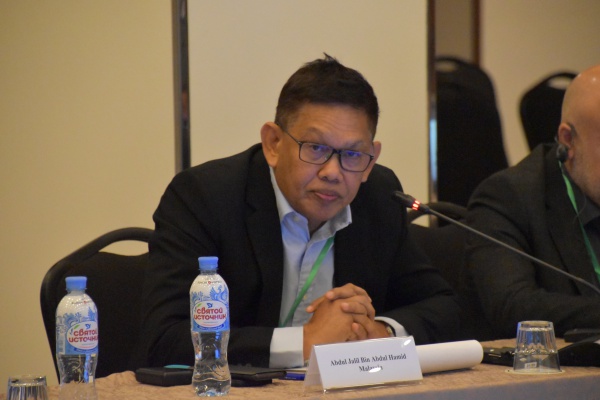
Abdul Jalil bin Abdul Hamid
Iranian specialist on international relations and political expert Mohammad Marandi also began his speech by mentioning Sergey Lavrov. In the political scientist’s opinion, the failure of the unipolar world is evidenced by the fact that the foundations of the Western world order are questioned by the West itself. This is reflected, in particular, in the entry into the political arena of the previously marginalized forces that want to curtail the liberal project. But there is one significant problem – the collective non-West uses the narrative of the West. Anyway, Western way of living seems attractive for many people.
Mohammad Marandi also touched upon the forum topic – mechanisms to counteract fakes. The war in mass media, as the Iranian expert points out, is ongoing. The key problem in this field is lack of active knowledge. Terrorism is depicted as faceless, but in Western mass media it is connected exclusively with the Islamic religion. Wahhabi extremism has become a weapon of the West in the fight against the Islamic world. The discourse of hostility is followed by a disastrous political course for Muslim countries (Iraq, Libya, and Syria). Now the USA and its allies focus their attention on Iran, which is deliberately portrayed as the embodiment of evil.
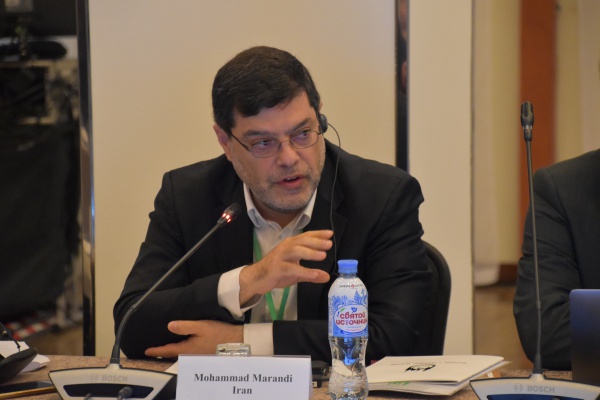
Mohammad Marandi
Editor-in-chief of “The Nation” (Pakistan) Salem Bokhari turned the discussion into a different direction. He wondered, whether the modern world understood the perspective of Muslims. How clearly is it expressed? The Muslim population in the scale of the entire world is 25 per cent, but there is no mass media with a similar influence on Western media. Some Muslim countries have their own information resources, but their influence is limited at a minimum, to geographical boundaries. At the present time there is no large media project in the world, which would clearly convey the position of Muslims and update their agenda. For instance, nobody is covering the situation in Kashmir. There are Western journalists there, but they are in a good position for India. Nobody pays any attention to the humanitarian catastrophe, which takes place in the occupied territory. Mass media of the Islamic world are not conducting a visible campaign to support Kashmir Muslims. The same situation is typical for Palestine. Western mass media are not interested in this topic. At the same time, Muslim journalists are not able to fill the gap, although this is their task.
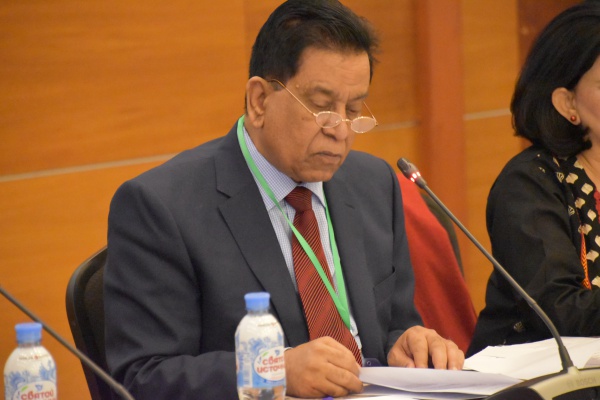
Salem Bokhari
President of the public fund “Eurasia World” from Kazakhstan Eduard Poletaev highlighted in his speech the trends in the development of social media in Kazakhstan. While traditional mass media are controlled by the state, there is no such dominance in social networks. It creates certain balance, but such a situation also poses a threat related to the leakage of personal data. Extortion of confidential information, theft of funds from bank cards and other cybercrimes have become ordinary for the population of Kazakhstan. Kazakhstani authorities are interested in the Chinese experience of interacting with the Internet, which is characterized by pre-moderation of user accounts, as opposed to post-moderation of the American model. But over-regulation has also some negative consequences. Internet users are beginning to take an interest in Western media, consume exclusively entertaining content, and are exposed to clandestine ideas when they cannot find an alternative to the few opinions expressed by official discourse.
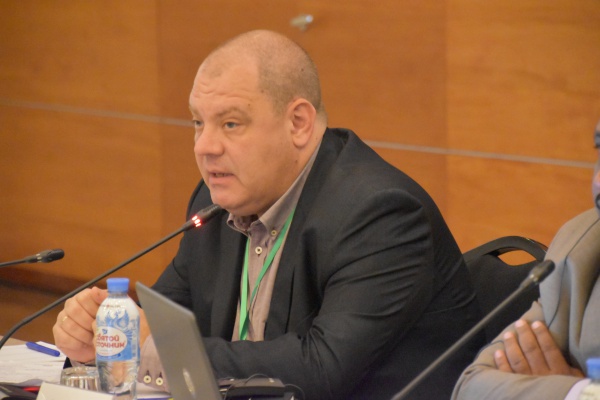
Eduard Poletaev
Head of the “An-Nahar” Kuwaiti website Samira Frimeche pointed out that neither majority of Muslims countries, nor Russia did not hold the top positions in press freedom ratings. It is obvious that journalists are under pressure. Russia and Islamic countries are to solve this problem. Under these conditions, ordinary citizens find the relatively unregulated space of Facebook attractive.
Often, people’s rights and interests are defended through social networks. But media platforms can serve the interests of foreign states and interest groups. Samira Frimeche also discussed the experience of Kuwait in fighting with fakes. She highlighted legal norms. Frimche advised to study legal framework of Kuwait and create influential mass media platform from which Muslim journalists can broadcast and where their voices would be heard.
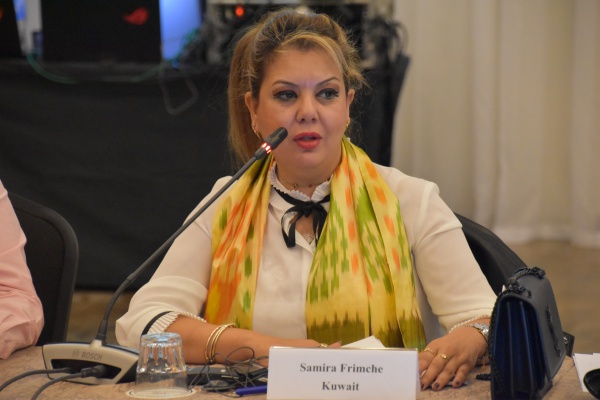
Samira Frimeche
Journalist from Sudan Mohamed El-Nair Mohamed El-Nur (newspaper “Aliyaf”) expressed his hope that the Sudan would join the BRICS. The December revolution which took place in the country last year, made the prospects for the democratization of Sudan more real. The BRICS is considered by the leadership of the country as an alternative to the established international political institutions.
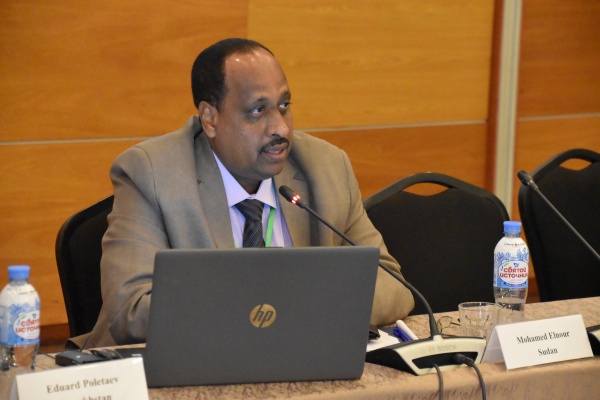
Mohamed El-Nair Mohamed El-Nur
Political expert from the newspaper “An-Nahar” (Lebanon) Radwan Akil claimed that there was a split among journalists in his country. One group covers events from a Western perspective; the other one takes a more balanced position. Actions of Russia are often severely criticized by the first group of journalists. However, a balanced position aimed at avoiding bias is the only right solution.
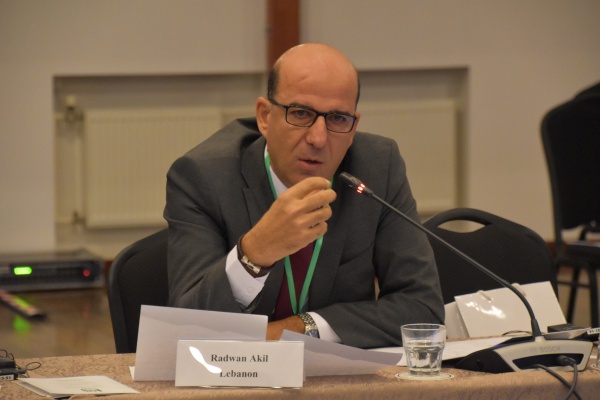
Radwan Akil
Deputy Chairman of the Strategic Vision Group “Russia – Islamic World” Farit Mukhametshin summed up the speeches and noted that all the proposals would be analyzed by the Forum Organizing Committee, and the collection would appear in three languages - Russian, English and Arabic.
The Group of Strategic Vision “Russia – Islamic World”
